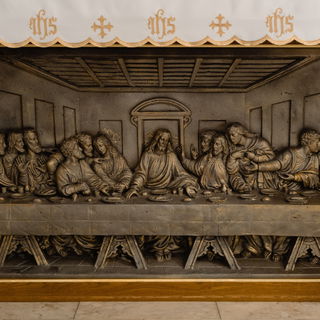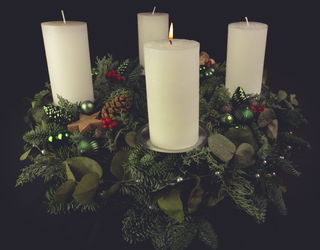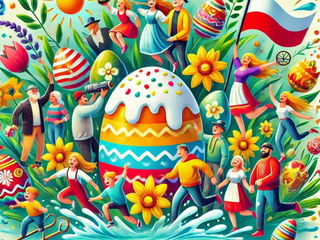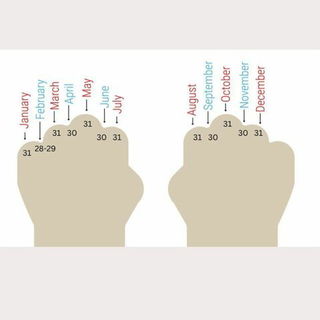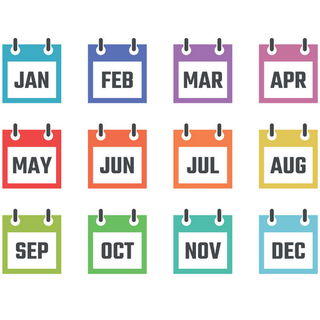- Calendar
- Calendar 2025
- April
- Easter Sunday
Easter Sunday
Easter Sunday is a major Christian holiday celebrating Jesus Christ's resurrection three days after his death. In 2024 this will be March 31st.
As with many other Christian celebrations, it is a moveable feast, and its date always falls on the first Sunday after the ecclesiastical full moon, between March 21 and April 25. Easter Sunday is not a public holiday therefore most stores are open and follow Sunday business hours.

History of Easter
Easter marks the end of a period known as the Passion of Christ, which begins with the 40 days of lent, symbolizing the days that Jesus spent in the desert being tempted by the Devil. It culminates in Holy Week during which Jesus was crucified:
- Holy Thursday (also Maundy Thursday) where Jesus had his Last Supper.
- Good Friday when Jesus was crucified.
- Easter Sunday, which marks the day of his resurrection.
Where does the word Easter come from?
Although there is some debate, most agree that Easter derives from Eostre or Eostrae, who was a goddess that pagans honored in spring fertility festivals. These festivals took place during the spring equinox, and it is believed that Christians took the name and celebrations from these festivals.
Why do we celebrate Easter?
Easter Sunday is the foundation of the Christian faith, marking the day of Jesus Christ’s resurrection after his crucifixion.
In around 30 AD, Roman Emperor Pontius Pilate sentenced Jesus Christ to death, after having him arrested by his troops for claiming to be the “Son of God”. After his death, he was buried in a tomb that was closed off by a big rock. It is said that three days after his burial of him, Jesus' followers found the tomb open upon visiting it, and Jesus' body was missing. During this period, Jesus Christ appeared to many of his followers, before ascending to heaven to be with his father.
In the Bible, it is written that believers who celebrate the events of Easter and have faith in Jesus' resurrection will also have eternal life. This is why Easter Sunday became a popular celebration in the Christian religion.

When did Easter celebrations start?
Initially, Easter's date was determined by the day of the Jewish Passover, as Jesus had his Passover feast the day before his crucifixion. As such, Christians originally waited for the date of the Jewish Passover to be established and held Easter celebrations three days after that.
However, as it is believed that Jesus arose on a Sunday, this brought problems, as the date would not always fall on a Sunday. Thus, Christians took to celebrating Easter on the nearest Sunday to Passover.
As the two religions strayed further apart, Christians became unwilling to let their holiday be determined by the Jewish calendar. So, it was decided in the Council of Nicaea that Easter should be celebrated on the Sunday after the first full moon of the Spring Equinox.
6 Delicious Easter Treats From Around The World
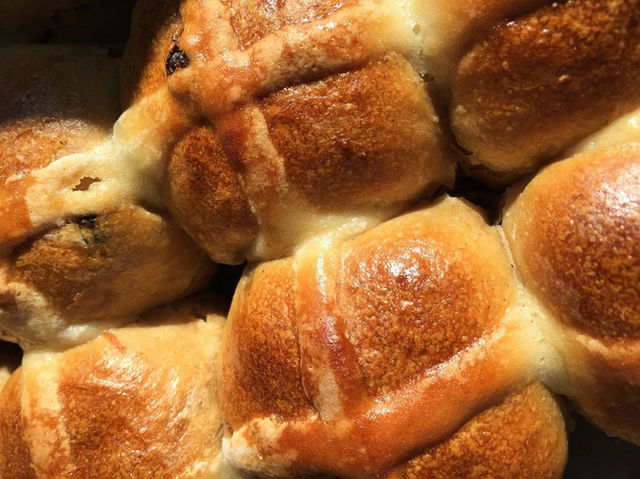
There are also many traditions, especially Easter treats such as food, cakes, and sweets which are specific to different countries across the world:
-
Pane di Pasqua - an Easter bread made in Italy. A braided sweet brioche bread which is usually made with eggs, sugar, and lemon zest and decorated with colored eggs. It is shaped in a circle to symbolize the crown of thorns Jesus wore.
-
Pashka which is a popular Easter dessert across Europe, in Finland, Latvia, is a sweet cheese dessert made from curd cheese and flavored with raisins, candied fruit, and nuts.
-
Hot Cross Buns (England) - Sweet buns marked with a cross on the top, symbolizing the crucifixion of Jesus.
-
Tsoureki (Easter Bread - Greece) - A sweet bread flavored with cinnamon, cloves, and orange zest, often shaped into a braid.
-
Easter Cake (Poland) - A sweet cake made from curd cheese and flavored with raisins, nuts, and spices.
-
Folar da Easter (Portugal) - A sweet bread made with eggs, sugar, and lemon zest and often decorated with a cross on top.
Easter Lamb
Another popular Easter food is Lamb, prepared either roasted or grilled, and is a traditional Easter meal in many Mediterranean countries. In many parts of the bible Jesus is referred to as 'The Lamb of God', so the lamb has a deep connection to Easter. Other meats, such as glazed ham, are also popular Easter dishes in countries such as the United States.
Easter Traditions
While Easter is a Christian holiday, some of its most well-known traditions have no connection with religion, but instead, go back to pagan practices, examples of this include:
Easter Eggs
Chocolate Easter eggs are a common gift and popular symbol of Easter, their history stretching back hundreds of years. One common pastime for children is taking part in Easter egg hunts where they compete to see how many chocolate eggs they can find. Another pastime is decorating real eggs with colors and patterns. Historically, decorated eggs symbolized fertility and birth, and many people believe that it became associated with Easter due to the resurrection (ie rebirth) of Jesus Christ.
Nowhere can the tradition of Easter eggs be more obvious than at Pysanka Easter Egg Museum in Ukraine where giant eggs are painted and decorated for everyone to visit and enjoy.
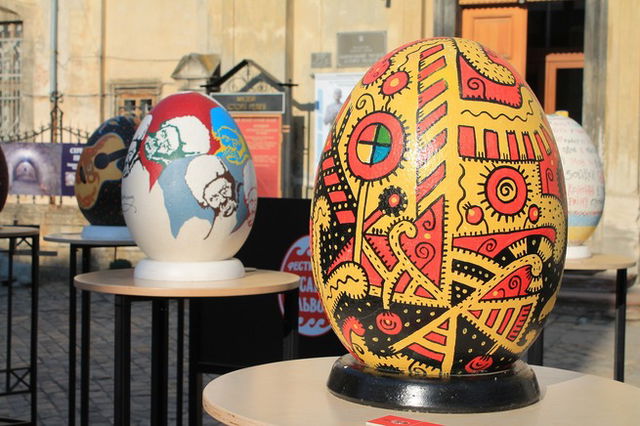
The Easter Bunny
Children are often told that Easter eggs are delivered by the Easter Bunny, in much the same way Father Christmas delivers at Christmas time. It is not entirely known where this tradition originated, but some sources believe it was brought to America by Germans in the 1700s. Much like the eggs, the use of bunnies during this holiday symbolizes birth and renewal in spring.
A celebration for everyone
Easter Sunday is an important day for Christians, with the meaning of Jesus' resurrection which they see as a guarantee of freedom from the wrong things they have done. The celebrations however are for everyone. It is a season and celebration of chocolate, sunny days, warmer weather, and new life.
And if you want to learn more about Holy Week and the events that lead up to Easter Sunday you can read about them here:

Other Celebrations
-
Apr 13 Sun
-
Apr 19 Sat
-
Apr 21 MonEaster Monday Holiday
-
May 29 Thu
-
Jun 15 Sun
-
Feb 08 Sun

Easter Sunday - Next years
Sunday, 05 April 2026
Sunday, 28 March 2027
Sunday, 16 April 2028
2025 Calendars
You might also be interested in

